How Disco Got Its Groove On (Review)
"Disco: Soundtrack of a Revolution" captures the rise, fall, and rebirth of disco from all the right angles.
By André Hereford on June 8, 2024 @here4andre

Before the haters tried to dim all the lights on disco, it was the sound of a global phenomenon. It was the sound of ’70s gay liberation, women’s liberation, and Black liberation, and that might be why, according to the astutely observant PBS docuseries Disco: Soundtrack of a Revolution, some people couldn’t take it.
However, at least one person interviewed in this three-part series argues that rock fans simply hated disco as a matter of musical taste, irrespective of any socio-political undertones. And anybody alive and conscious at the height of disco fever in 1979 reasonably could have just reached their limit.
As the series, produced and directed by Louise Lockwood and Shianne Brown, chronicles in briskly-paced fashion, the music genre arose out of New York’s underground party scene to quickly take over the country’s radio airwaves, sales charts, movies, TV, and fashion.
By the time disco achieved worldwide cultural saturation, and the novelty records started to roll in — from “Disco Duck,” to the Grammy-nominated Sesame Street disco album, featuring tracks like “Disco Frog” and “Me Lost Me Cookie at the Disco” — the backlash had galvanized into a fervent Disco Sucks movement.
On July 12, 1979, Disco Sucks had its day at Chicago’s Comiskey Park, where the feature presentation for the White Sox-Tigers doubleheader was a massive disco demolition derby held between games. The Disco Sucks demolition notoriously devolved from a mean-spirited album-burning into a flaming riot that resulted in the cancelation of the day’s second game.
The footage is still shocking, a sharp contrast to the scenes of peace, love, and inclusion set to a scintillating beat inside David Mancuso’s seminal underground dance spot The Loft, or DJ Larry Levan’s cathedral of house music, Paradise Garage.
Thorough and informative, but not exhaustive, Soundtrack of a Revolution pinpoints milestone figures and moments in the genre’s evolution from soul and R&B offshoot to four-on-the-floor phenomenon, to gasping its supposed last breaths. But disco didn’t die. The sound survived oversaturation, corporatization, and Disco Sucks.
Disco lived on, as the series concludes, in New Wave and house, in gay club DJs Levan and Frankie Knuckles, then rave and EDM. “House music is disco’s revenge,” declares feminist scholar Francesca T. Royster.
The filmmakers assemble a knowledgeable, engaging roster of interviewees — music experts, genre originators, DJs, producers, and all-time disco divas like Gloria Gaynor and Thelma Houston — relaying insight about subjects both expected and obscure.
Loaded with songs and clips, the series, of course, covers the ostentatious glamour of Studio 54, and the cultural phenomenon of Saturday Night Fever, the reign of Disco Queen, Donna Summer. But it finds true gold uncovering under-exposed history, like singer Candi Staton explaining how her upbeat hit “Young Hearts Run Free” was inspired by the night she had to flee a jealous husband who almost threw her off a balcony in Vegas.

Drummer Earl Young — the Philly-based music pioneer credited with inventing the disco style of drumming on the 1973 Harold Melvin & the Blue Notes R&B hit “The Love I Lost” — breaks down how he constructed the beat. And DJ Nicky Siano shows how he first looped the break in MFSB’s “Love Is the Message” to originate a dance floor classic that, to be sure, someone, somewhere is voguing to right now.
Because love was, and is, the message. Disco arose out of marginalized people wanting space to be themselves together, and dance in that freedom.
The series honors their story with a fair and focused reconstruction of the past, and a well-curated representation of the nu-disco generation grooving to Scissor Sisters, Dua Lipa, and Beyoncé’s Renaissance. If you ever cared about disco, or just want to relive hating it the first time, Soundtrack of a Revolution should ring your bell.
Disco: Soundtrack of a Revolution (★★★★☆), episode one, airs June 18 on PBS, episode two on June 25, and episode three on July 2.
All three episodes are available to stream on June 1 on PBS.org and the PBS app. Visit www.pbs.org.
The Star-Power of Idina Menzel Can’t Save ‘Redwood’
Idina Menzel returns to Broadway in "Redwood," a schmaltzy, shallow musical with little nuance.
By Ryan Leeds on March 2, 2025
A woman in search of meaning and closure gazes upward in a forest as streaks of sunlight bathe over her. She is Tony, Obie, and Drama League Award winner Idina Menzel, who graces the Playbill cover of Broadway's newest musical, Redwood.
Over the course of two intermission-less hours, Menzel -- who is also the show's co-conceiver and collaborator -- plays Jesse, a stereotypical high-strung New Yorker who belts songs, drives from Manhattan to California, talks excessively about grief, experiences flashbacks and memories of her deceased son, Spencer (Zachary Noah Piser) fights with her wife, Mel (De'Adre Aziza), and befriends two tree scientists, charming them in song with the following request:
‘Sister Act’ at Ford’s is a Heavenly Good Time
Beloved characters, a committed cast, and fabulous musical numbers add up to a great time at Ford's Theatre's "Sister Act"
By André Hereford on March 29, 2025 @here4andre
Blessed with a sweet yet sturdy redemption story, Sister Act, based on the hit 1992 film starring Whoopi Goldberg, is a natural fit as a screen-to-stage musical.
The tale of lounge singer Deloris Van Cartier hiding out from her murderous crime boss boyfriend in the last place he'd think to look for her -- a convent full of singing nuns -- eagerly lends itself to set-pieces full of singing and dancing.
Composer Alan Menken and lyricist Glenn Slater's score of catchy original tunes are paired with a solid book by Cheri Steinkellner and Bill Steinkellner, and additional material by Douglas Carter Beane.
Priyanka Shetty On Her Incisive New Solo Play ‘#Charlottesville’
Priyanka Shetty re-frames an infamous historical event to meet the present moment in her powerful play "#Charlottesville."
By André Hereford on March 29, 2025 @here4andre
Priyanka Shetty's incisive solo play #Charlottesville starts by asking, "Priyanka, where were you on August 11 and 12, 2017?"
Those days will live in infamy, not only for the brigade of torch-carrying, Dockers-wearing dickheads marching through the streets of Charlottesville, Virginia, but for the tragic death of Heather Heyer, killed by a self-avowed white supremacist who drove his car into a crowd of counter-protesters.
The firestorm set off by the protests and counter-protests, and the ensuing state of emergency and vehicular mass attack, was only further inflamed by then-President Trump's tone-deaf, at best, comments in response.
Support Metro Weekly’s Journalism
These are challenging times for news organizations. And yet it’s crucial we stay active and provide vital resources and information to both our local readers and the world. So won’t you please take a moment and consider supporting Metro Weekly with a membership? For as little as $5 a month, you can help ensure Metro Weekly magazine and MetroWeekly.com remain free, viable resources as we provide the best, most diverse, culturally-resonant LGBTQ coverage in both the D.C. region and around the world. Memberships come with exclusive perks and discounts, your own personal digital delivery of each week’s magazine (and an archive), access to our Member's Lounge when it launches this fall, and exclusive members-only items like Metro Weekly Membership Mugs and Tote Bags! Check out all our membership levels here and please join us today!
The Magazine
-
Most Popular
 Hugh Bonneville Delivers a Show-Stopping Vanya
Hugh Bonneville Delivers a Show-Stopping Vanya  Gay Army Reserve Officer in Uniform Sex Video Scandal
Gay Army Reserve Officer in Uniform Sex Video Scandal  Charges Dropped in Nancy Mace Assault Case
Charges Dropped in Nancy Mace Assault Case  Transgender Blackhawk Pilot Sues Right-Wing Influencer
Transgender Blackhawk Pilot Sues Right-Wing Influencer  Jared Polis Signs Law Repealing Colorado's Gay Marriage Ban
Jared Polis Signs Law Repealing Colorado's Gay Marriage Ban  Ban on Homosexuality Reinstated in Trinidad and Tobago
Ban on Homosexuality Reinstated in Trinidad and Tobago  White House Ignores Reporters with Pronouns in Email Signatures
White House Ignores Reporters with Pronouns in Email Signatures  Air Force Reverses Ban on Pronouns in Email Signatures
Air Force Reverses Ban on Pronouns in Email Signatures  White House Demands NIH Study Transgender Transition "Regret"
White House Demands NIH Study Transgender Transition "Regret"  WATCH: Ad Attacks Senator Over Trans Athlete Vote
WATCH: Ad Attacks Senator Over Trans Athlete Vote
 Jared Polis Signs Law Repealing Colorado's Gay Marriage Ban
Jared Polis Signs Law Repealing Colorado's Gay Marriage Ban  White House Ignores Reporters with Pronouns in Email Signatures
White House Ignores Reporters with Pronouns in Email Signatures  White House Demands NIH Study Transgender Transition "Regret"
White House Demands NIH Study Transgender Transition "Regret"  Air Force Reverses Ban on Pronouns in Email Signatures
Air Force Reverses Ban on Pronouns in Email Signatures  Transgender Blackhawk Pilot Sues Right-Wing Influencer
Transgender Blackhawk Pilot Sues Right-Wing Influencer  'cullud wattah' is a Compelling Drama About Flint's Toxic Water
'cullud wattah' is a Compelling Drama About Flint's Toxic Water  Gay French Thriller 'Misericordia' is Creepy and Suspenseful
Gay French Thriller 'Misericordia' is Creepy and Suspenseful  Hugh Bonneville Delivers a Show-Stopping Vanya
Hugh Bonneville Delivers a Show-Stopping Vanya  This Week's Advertisers: Rep. Becca Balint - April 10, 2025
This Week's Advertisers: Rep. Becca Balint - April 10, 2025  WorldPride Warns International Trans Visitors About Travel Risks
WorldPride Warns International Trans Visitors About Travel Risks
Scene
Metro Weekly
Washington's LGBTQ Magazine
P.O. Box 11559
Washington, DC 20008 (202) 638-6830
About Us pageFollow Us:
· Facebook
· Twitter
· Flipboard
· YouTube
· Instagram
· RSS News | RSS SceneArchives
Copyright ©2024 Jansi LLC.



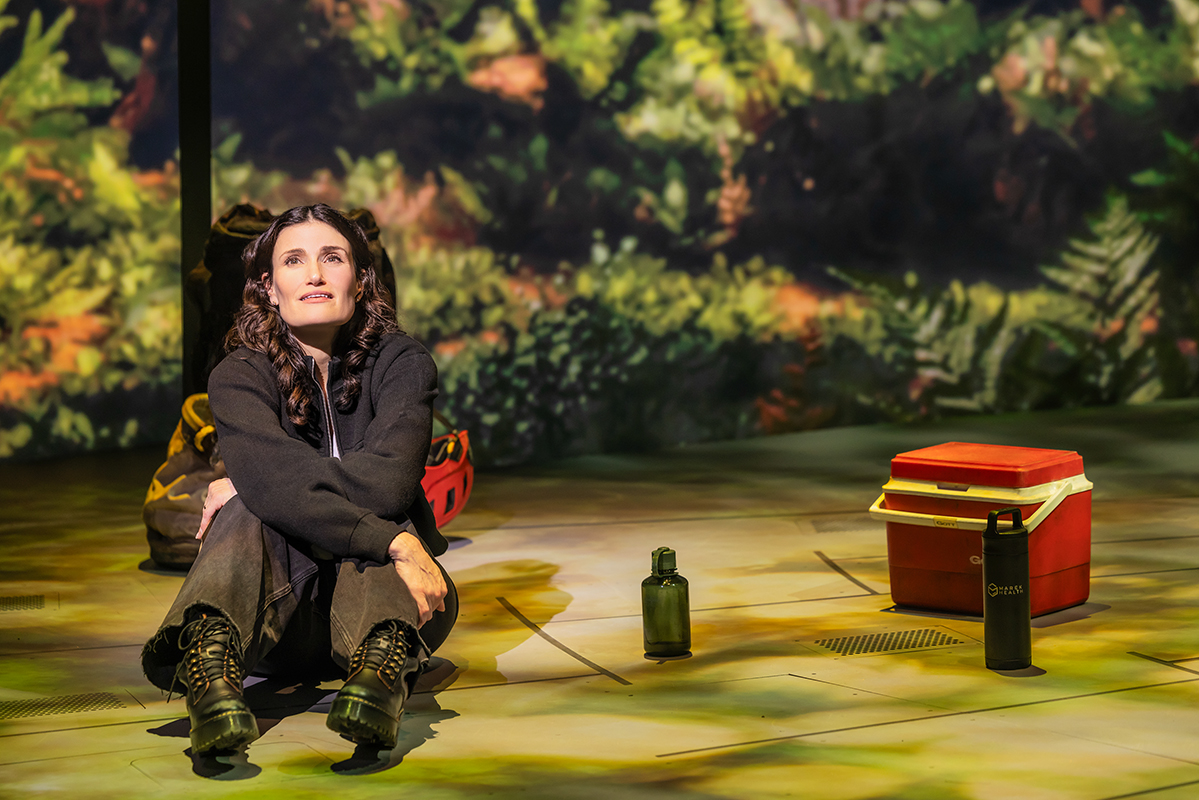
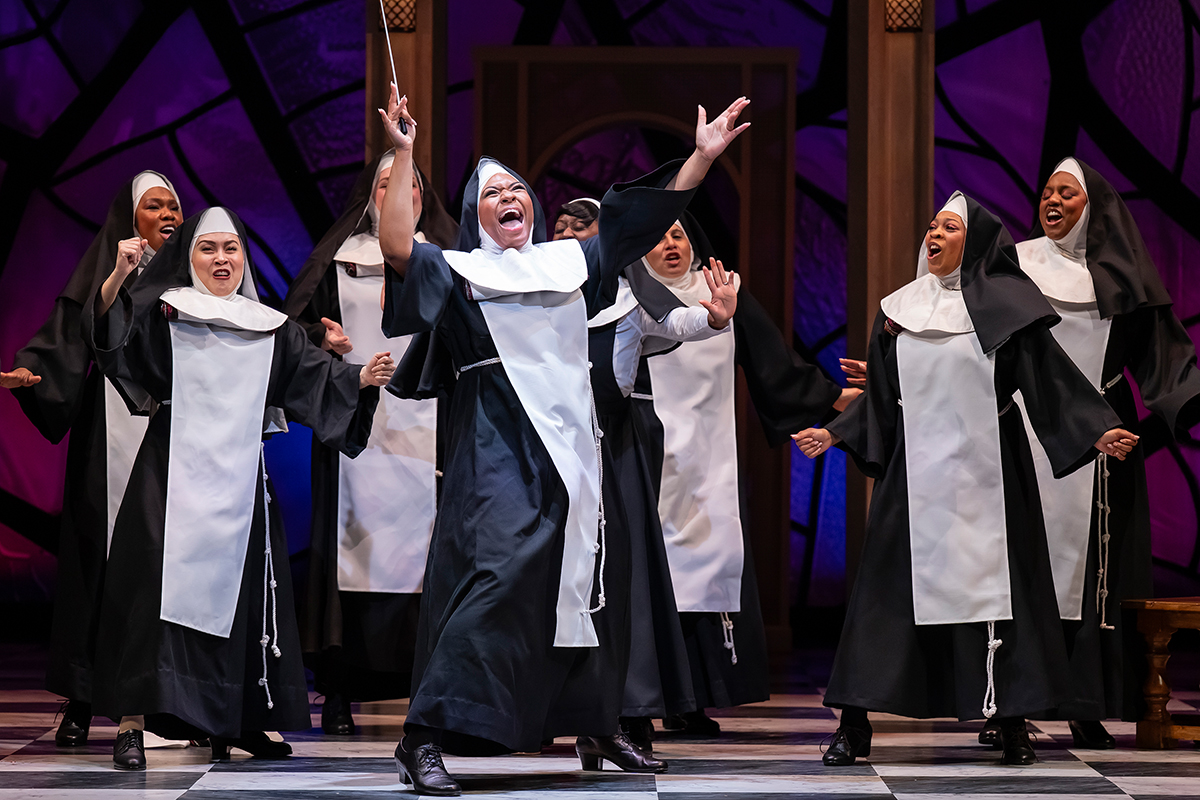
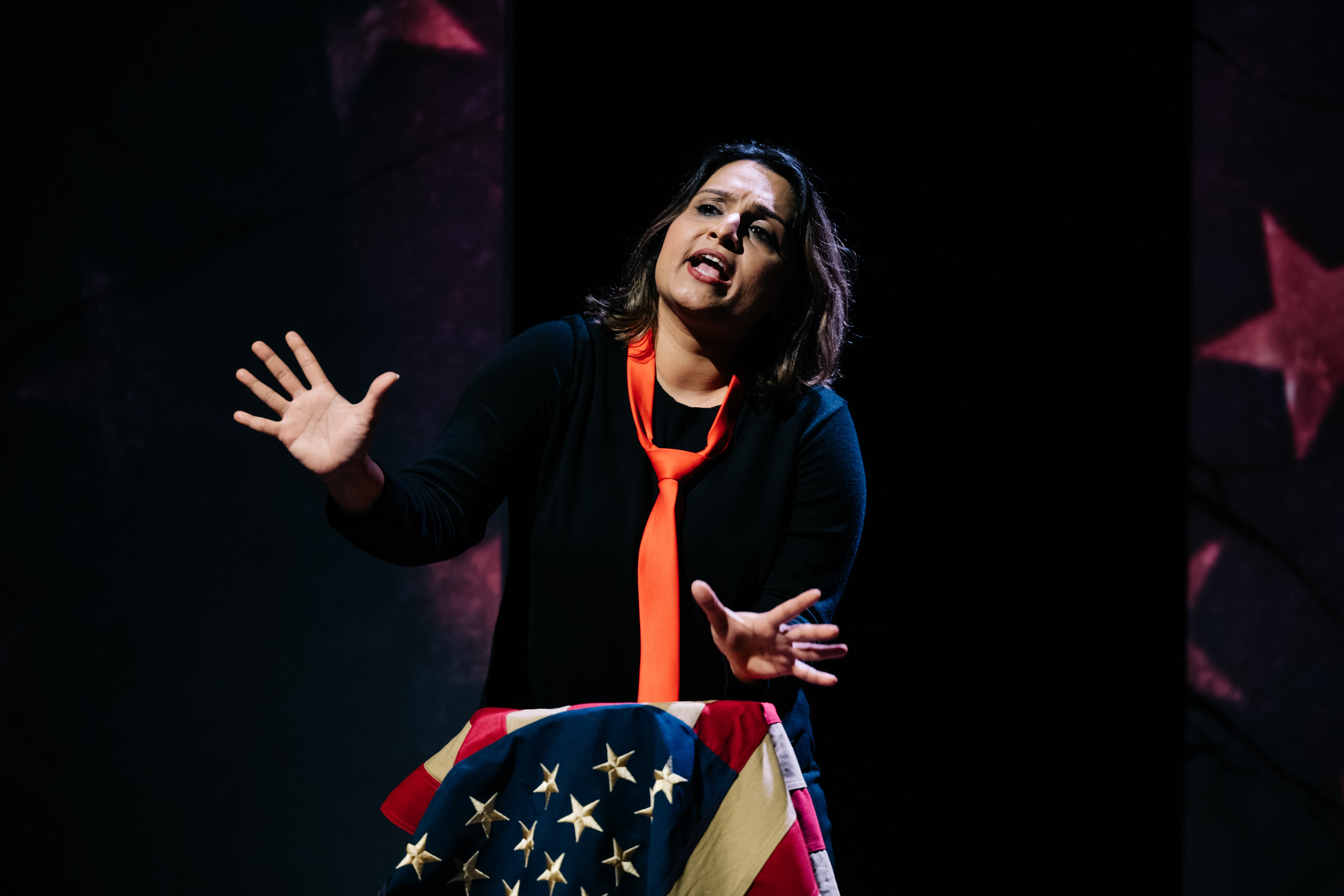
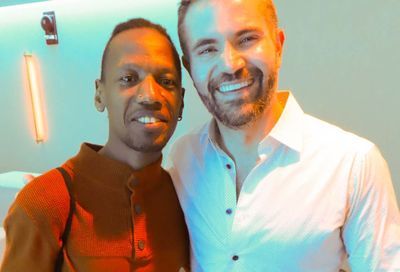
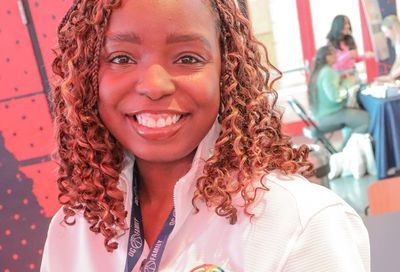

You must be logged in to post a comment.